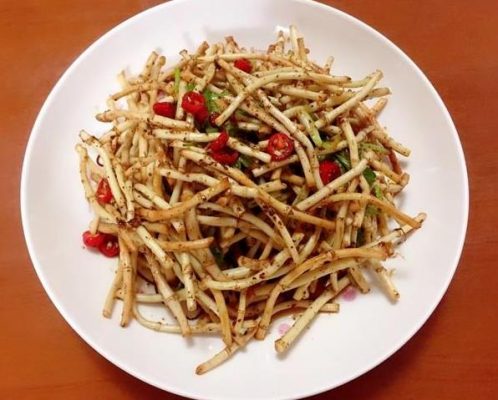Healthy diet
Houttuynia cordata contains aristolochic acid?
Houttuynia cordata contains aristolochic acid?
Houttuynia cordata is a vegetable that is both medicinal and edible. People who love it love it very much, but some people cannot accept its taste at all. Besides the taste, some people also think that there is aristolochic acid in Houttuynia cordata, and eating too much can increase the risk of cancer. Is this true?
Aristolochic acid is an organic acid compound widely present in Aristolochiaceae plants such as Aristolochia and Asarum. Common traditional Chinese medicines containing aristolochic acid include Aristolochia, Atractylodes macrocephala, Eucommia ulmoides, Atractylodes macrocephala, Polygonatum sibiricum, and Asarum.
Traditional Chinese medicine believes that the Chinese herbs of Aristolochia have anti infective, diuretic, anti-inflammatory and other effects, and are often used in the treatment of gout, rheumatism, wound suppuration, and weight loss.

Research suggests that aristolochic acid is one of the important factors leading to the occurrence of liver cancer in Asia. In mainland China, about 47% of liver cancer cases are related to cell mutations caused by aristolochic acid.
But it is actually a misunderstanding that Houttuynia cordata contains aristolochic acid. Aristolochic acid is widely present in Aristolochia plants, but Houttuynia cordata itself is not a Aristolochia plant and naturally does not contain Aristolochic acid.
Houttuynia cordata contains aristolochic acid, which is a completely different substance from aristolochic acid. Aristolochic acid lactam is a metabolic product of aristolochic acid in the liver, widely present in nature, and does not cause cancer or kidney damage.


